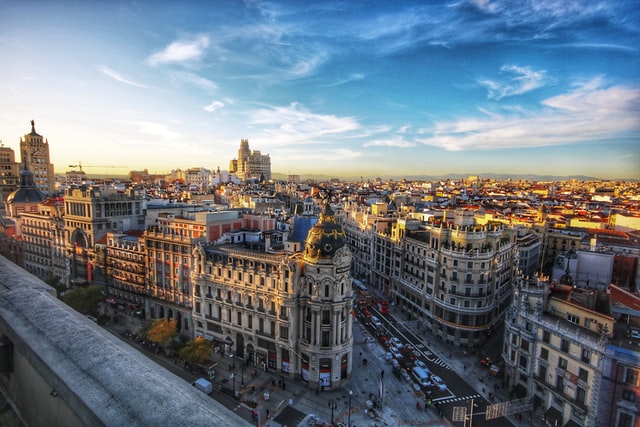
Photo: jorge-fernandez-salas-unsplash
Making Europe’s mobility modal shift a reality
05 April 2022
by Christopher Carey
Christopher Carey rounds up the key talking points from a recent Cities Today City Leadership Forum event attended by transport decision-makers from across Europe.
As commuters return to Europe’s roads, public transport and cycle paths, more cities are looking at how mobility can be better managed to meet changing priorities.
The need to shift to electric vehicles, micromobility and active travel has become more pressing for municipal authorities – particularly in light of climate commitments – but establishing best practice can mean different things for different cities.
In Spain, the return of commuters has guided Madrid’s 360 Environmental Sustainability Strategy, which was initially created to comply with the EU’s limits on air pollution.
Currently almost 80 percent of all trips in the city are made by car, and just 1.9 percent of these vehicles are hybrid or electric.
The strategy comprises over 200 initiatives to boost the amount of public transport on offer, improve infrastructure, promote active mobility and ultimately reduce emissions.
Lola Ortiz, General Director of Planning and Mobility Infrastructure, Madrid, said: “The use of technology to improve public transport is critical, but so is promoting public transport to reduce traffic jams.”
The city has built 60 kilometres of new bus lanes with a further 250 kilometres expected by 2030, and initiated fare-free days to encourage people back on public transport and reduce congestion.
It has also established a regulatory framework to make the entire territory of the capital a Low Emission Zone (LEZ) by 2025 – thereby spurring a modal shift away from the car.
This theme is being echoed in other cities across the continent, where the status quo is being challenged.
Rachel Tienkamp-Beishuizen, Head of Traffic Management, City of Amsterdam, said: “We have to manage mobility as a chain of modalities – making transport as comfortable as possible and seeing how you can steer it and manage it.”
Are cars finished?
With the shift to more sustainable modes of transport high on the agenda, the role of the car is under more scrutiny than ever.
While most cities agree there is a need to reduce car use, they recognise the need to be realistic.
“There is a big similarity in the challenges we all face,” said Koen Kennis, Alderman for Mobility, City of Antwerp.
“We’re looking closely at the modal shift, but we try to keep a balance so we don’t push away people who are using the car, but try to convince them to use other modes.
“It’s important to look at the context when empowering people to decide on which modes they should use. If the sun is shining and you don’t have to carry a lot with you or go far, the bicycle is the perfect way to travel in the city.
“But if it’s raining and there’s somewhere you need to be and look presentable, a car or taxi can be the best solution.”
“So ultimately it depends on different factors like what is your need, your physical condition, the weather, how much you have to take with you,” he said. “The car will remain in our cities, and we have to factor that into our discussions.”
Industry view
New models for public-private cooperation are emerging, particularly as city budgets are stretched following COVID-19.
Rob Cullingworth, Country Manager UK & Ireland, VIX Technology, said: “Innovation is more than technology – it requires clarity of goals, strong customer relationships, and flexibility through the process.”
During the pandemic, the firm partnered with Rome Metro to implement a platform providing teachers with free taxi transport to and from school – with the entire project delivered within six weeks of conception.
“To make rapid innovation a reality, suppliers and their customers must become partners and collaborators – when this happens, anything is possible,” added Cullingworth.
Steve Parsons, Sales Director, Kapsch TrafficCom, said: “By providing an extensive portfolio of solutions to help cities resolve congestion, which will ultimately have a positive impact on air quality, we are leading a more sustainable future which is good for everyone.”
Paul Hirst, Head of Transport at law firm Addleshaw Goddard, said: “In future we can expect more new and exciting public-private partnerships like the TfL/Mercedes collaboration as the current post-COVID-19 challenges present the opportunity to use the power of data and transport to reconfigure our cities.”
Image: jorge-fernandez-salas-unsplash






